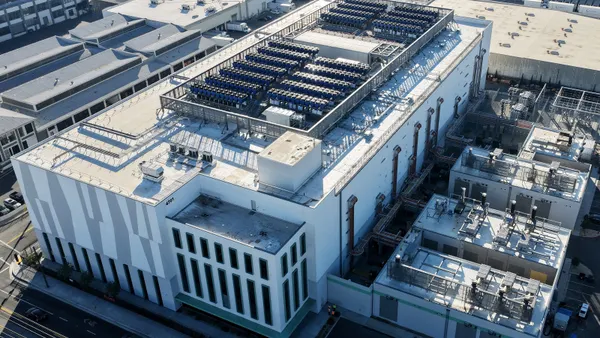Dive Brief:
- In a win for the state's solar industry, the New Hampshire House of Representatives Science, Technology and Energy Committee voted 18-2 to not recommend a bill to the full house that would have removed barriers to utility ownership of rooftop solar. The action effectively kills the bill, SB 117, which passed the Senate in March.
- Because Eversource Energy is completing divesture of generating facilities required of New Hampshire utilities under deregulation, the committee chose to postpone a decision on allowing power distribution companies to own rooftop solar until the divestiture if finalized.
- In a separate action, the House approved by a 218-125 vote the Senate-passed SB 60, which establishes a commission to study the benefits and impacts of shifting New Hampshire utilities to a decoupling system in which volumetric sales would be separated from utility returns.
Dive Insight:
SB 117 was intended to boost rooftop solar by doubling the state's cap on net metered solar to 100 MW. Following input from Eversource, Unitil, and New Hampshire Electric Cooperative that net metering causes a shift of costs for grid infrastructure to non-solar owners, the amended bill only proposed further study.
The bill also would have removed a requirement that utilities prove the benefits of rooftop solar investments before making them. Currently the state's power companies, which supported the bill, must prove to regulators that any solar investments will help grid reliability and efficiency, and not adversely impact competition or ratepayers.
The popularity of solar in New Hampshire necessitated a reconsideration of the NEM cap because rooftop solar was nearing the 50 MW limit. New solar would not earn retail rate reimbursement for electricity sent to the grid.
In a separate action, the lawmakers also voted to study the impacts of decoupling utility returns from volumetric charges, an action that efficiency advocates say would help incentivize power companies to help consumers save energy.
Energy efficiency improvements by U.S. electric and natural gas utilities could save $700 billion by 2020, create millions of jobs, and reduce emissions and pollution, proponents say. But utilities that drive customer efficiency cut their own volumetric electricity sales, financially compromising their business and their investors. With decoupling mechanisms, annual rate reconciliations can allow compensation for under- or over-collection of fixed costs during the previous year.
More than half the states have adopted decoupling mechanisms to allow utilities to grow the “negawatts” of energy efficiency.












